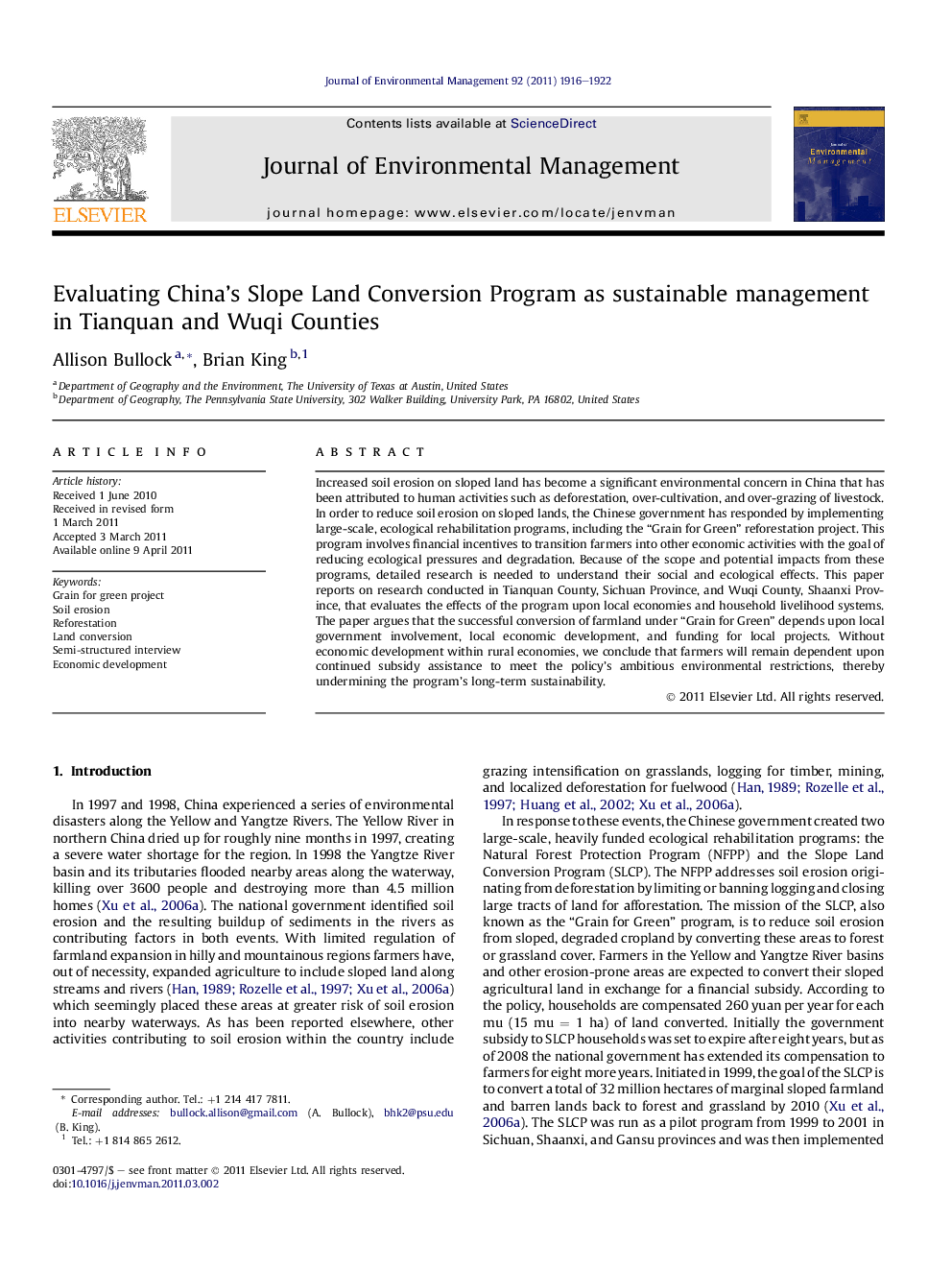| Article ID | Journal | Published Year | Pages | File Type |
|---|---|---|---|---|
| 1057311 | Journal of Environmental Management | 2011 | 7 Pages |
Increased soil erosion on sloped land has become a significant environmental concern in China that has been attributed to human activities such as deforestation, over-cultivation, and over-grazing of livestock. In order to reduce soil erosion on sloped lands, the Chinese government has responded by implementing large-scale, ecological rehabilitation programs, including the “Grain for Green” reforestation project. This program involves financial incentives to transition farmers into other economic activities with the goal of reducing ecological pressures and degradation. Because of the scope and potential impacts from these programs, detailed research is needed to understand their social and ecological effects. This paper reports on research conducted in Tianquan County, Sichuan Province, and Wuqi County, Shaanxi Province, that evaluates the effects of the program upon local economies and household livelihood systems. The paper argues that the successful conversion of farmland under “Grain for Green” depends upon local government involvement, local economic development, and funding for local projects. Without economic development within rural economies, we conclude that farmers will remain dependent upon continued subsidy assistance to meet the policy’s ambitious environmental restrictions, thereby undermining the program’s long-term sustainability.
